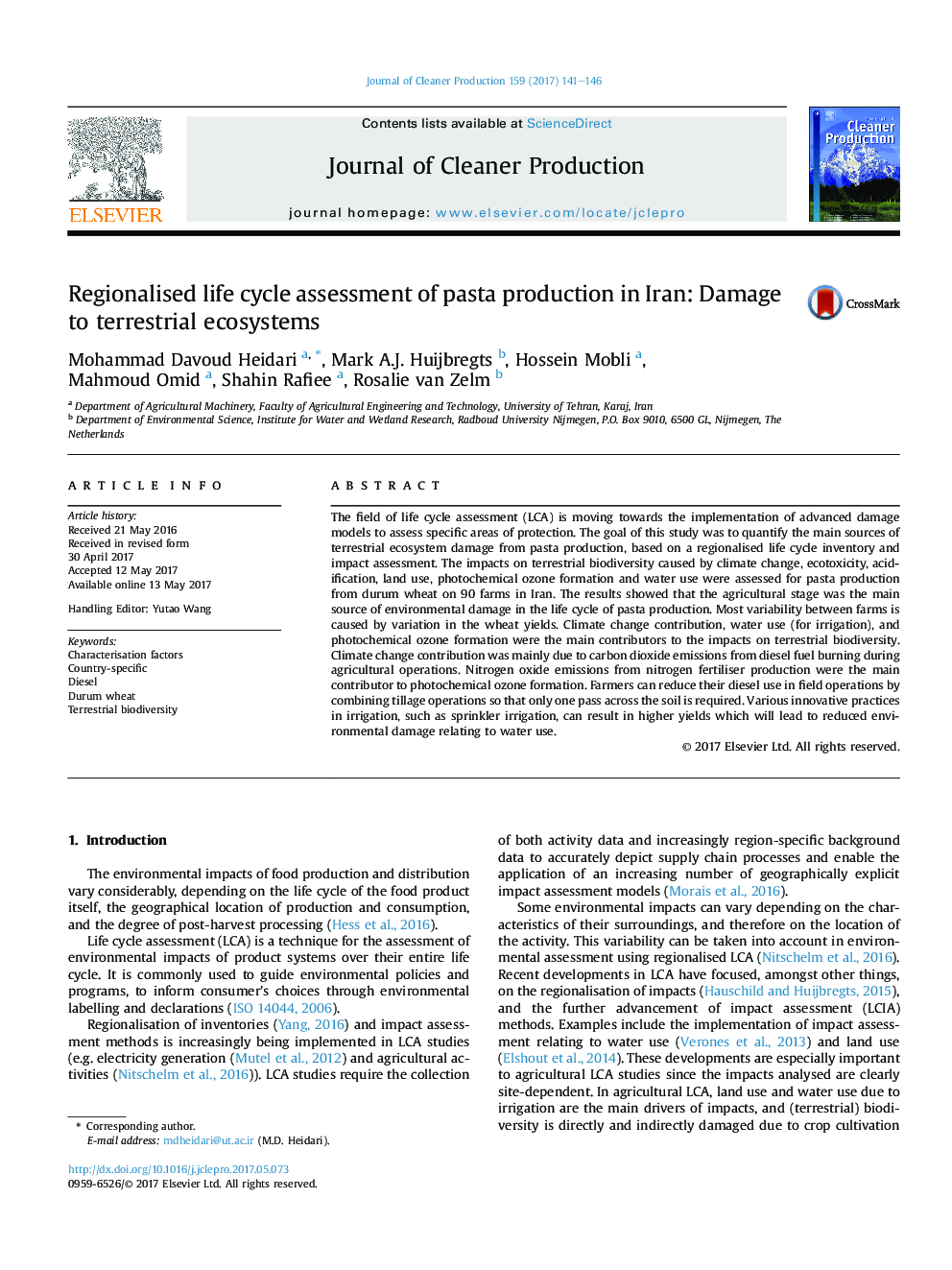| کد مقاله | کد نشریه | سال انتشار | مقاله انگلیسی | نسخه تمام متن |
|---|---|---|---|---|
| 5480927 | 1522095 | 2017 | 6 صفحه PDF | دانلود رایگان |
- Main sources of terrestrial biodiversity damage of pasta production in Iran were identified.
- Inventory data of 90 farms were coupled with country specific impact assessment data.
- Irrigation water use and diesel fuel use contributed to overall biodiversity loss.
- Farm-specific variability in damage scores was 0.74-1.43 PDFÂ m2Â y/kg (95% range).
The field of life cycle assessment (LCA) is moving towards the implementation of advanced damage models to assess specific areas of protection. The goal of this study was to quantify the main sources of terrestrial ecosystem damage from pasta production, based on a regionalised life cycle inventory and impact assessment. The impacts on terrestrial biodiversity caused by climate change, ecotoxicity, acidification, land use, photochemical ozone formation and water use were assessed for pasta production from durum wheat on 90 farms in Iran. The results showed that the agricultural stage was the main source of environmental damage in the life cycle of pasta production. Most variability between farms is caused by variation in the wheat yields. Climate change contribution, water use (for irrigation), and photochemical ozone formation were the main contributors to the impacts on terrestrial biodiversity. Climate change contribution was mainly due to carbon dioxide emissions from diesel fuel burning during agricultural operations. Nitrogen oxide emissions from nitrogen fertiliser production were the main contributor to photochemical ozone formation. Farmers can reduce their diesel use in field operations by combining tillage operations so that only one pass across the soil is required. Various innovative practices in irrigation, such as sprinkler irrigation, can result in higher yields which will lead to reduced environmental damage relating to water use.
Journal: Journal of Cleaner Production - Volume 159, 15 August 2017, Pages 141-146
